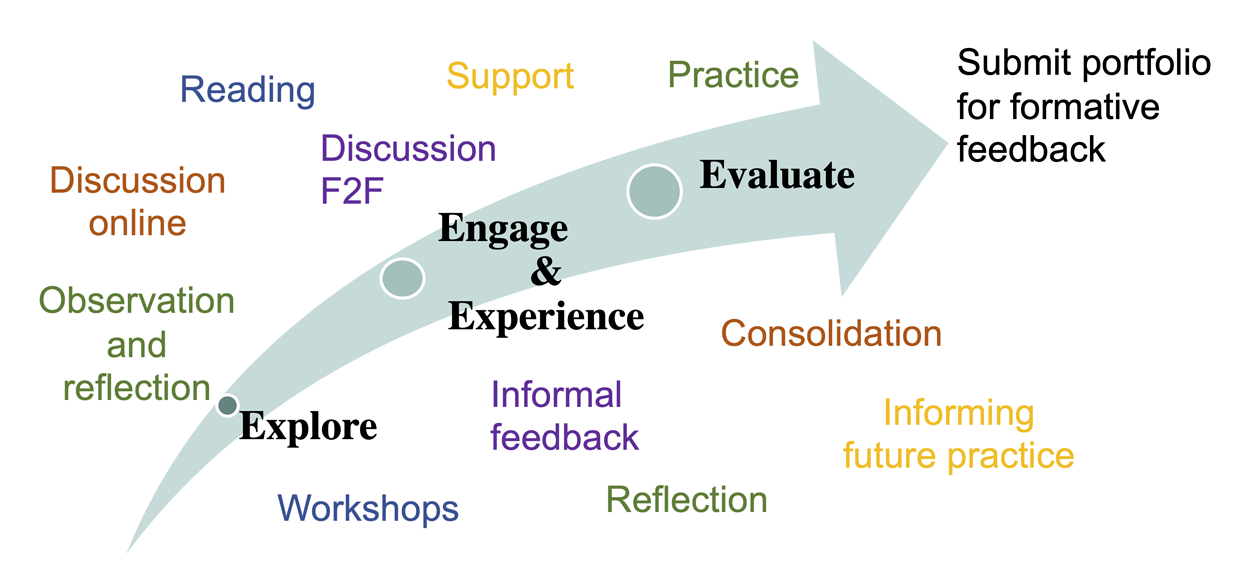
CICCP consists of 6 main units in Classroom Practice
The uniqueness of the programme is in the CICCP design which consists of 3 different phases – Explore, Engage & Extend and Evaluate. Each phase is a progression towards the next, ensuring transferability from knowledge to practical classroom practices. This is done through hands-on activities and modelling of best practices during training.
The six units are all linked in a spiral of learning that builds on the candidates’ own prior knowledge and experience and links new learning to the core attributes of Cambridge learners and Cambridge teachers REF: https://www.cambridgeinternational.org/Images/417069-developing-the-cambridge-learner-attributes-guide.pdf
Each unit is set out in terms of its learning outcomes, key questions, assessment approach and evidence requirements. Assessment criteria appear at the end of this section.
Candidates explore the requirements of the course, the role of a mentor and how the course will benefit teachers who are new to the international teaching setting. The candidates will also explore the value of reflective practice in supporting them to be an effective teacher and how reflective practice is embedded and implemented throughout the course.
Using Active Learning approaches, candidates develop a better understanding of the relevant concepts and principles of classroom practice and how this will inform their practice to support the learning of their learners. Throughout the 6 units, learners are engaged in collaborative work, discussion and reflection by participating in both Synchronous and Asynchronous learning sessions. These sessions will support the candidate in connecting to their prior knowledge and experience while extending their knowledge, skills and understanding in classroom practice. In every unit, there is opportunity for candidates to put into practice the new learning by demonstrating their understanding in teaching and learning. A task will be assigned to help candidates consolidate their understanding and gather evidence of their classroom practice. Examples of the task assigned include observing an experienced practitioner, interviewing a member of the school and planning and teaching a lesson. Mentor plays a crucial role in this stage to guide, identify and misconceptions, encourage and support candidates in achieving the learning outcomes.
At least 2 sessions are provided to evaluate the candidates’ understanding and application of what they have learned. The sessions serve as a checkpoint in the mid and end of their training journey. Candidates are guided and supported to consolidate their learning by reviewing their understanding and the feedback provided from the moderation of their assessment tasks. Any misconception is rectified with appropriate support to bridge any gaps in learning.
Copyright ©2022 HELP University Sdn Bhd
Company Registration Number: 198201005211 (84963-D)
MOHE Approval Number: DU028(W)
DISCLAIMER: HELP University shall not be liable for any loss or damage caused by the usage of any information obtained from this site.
